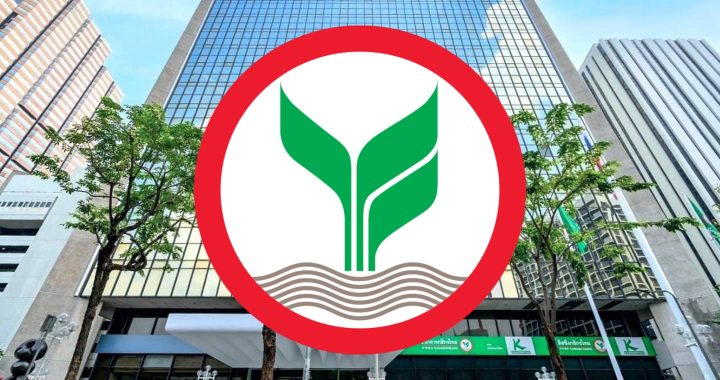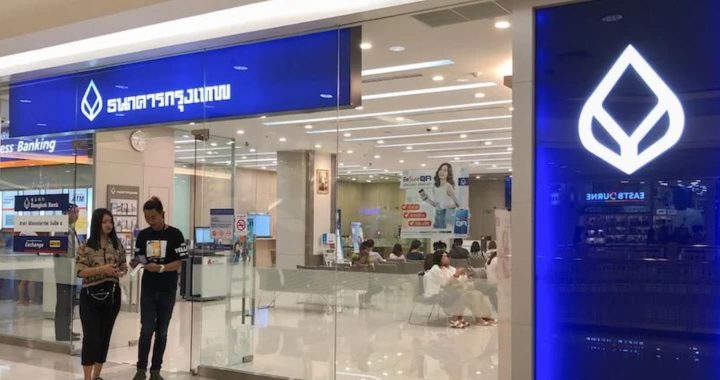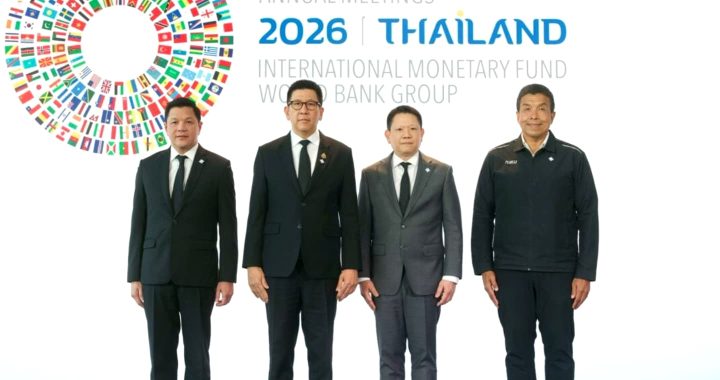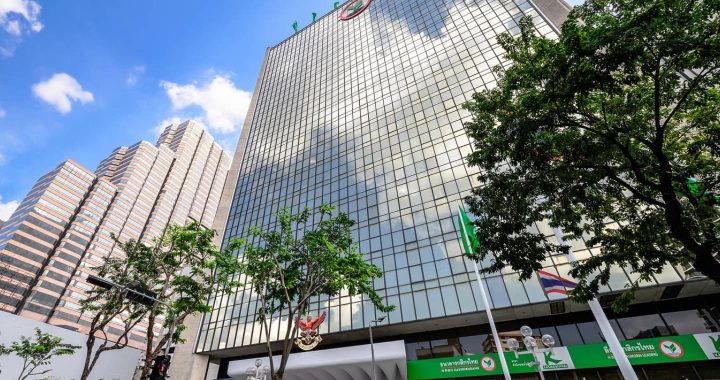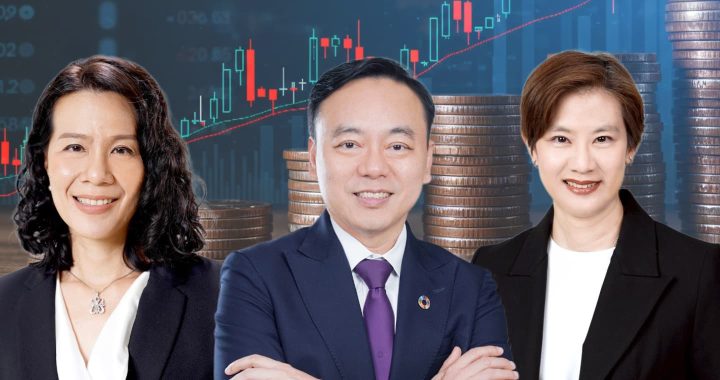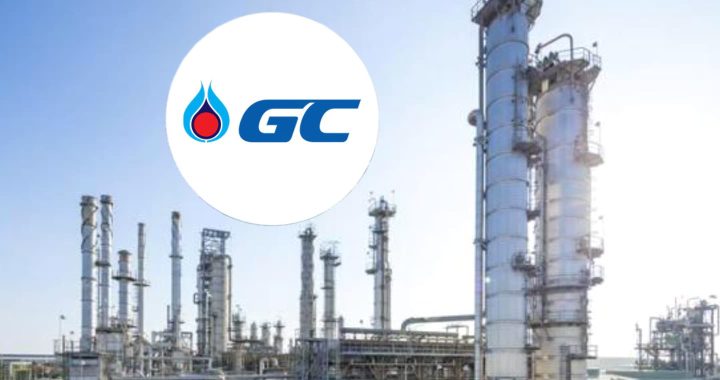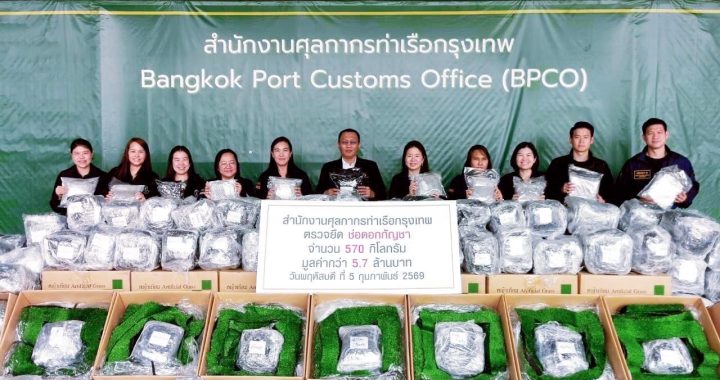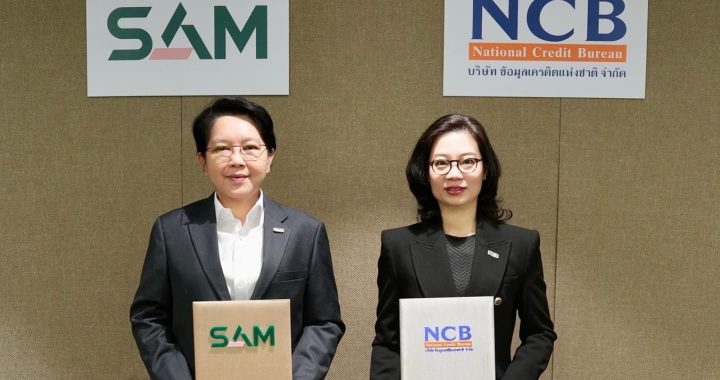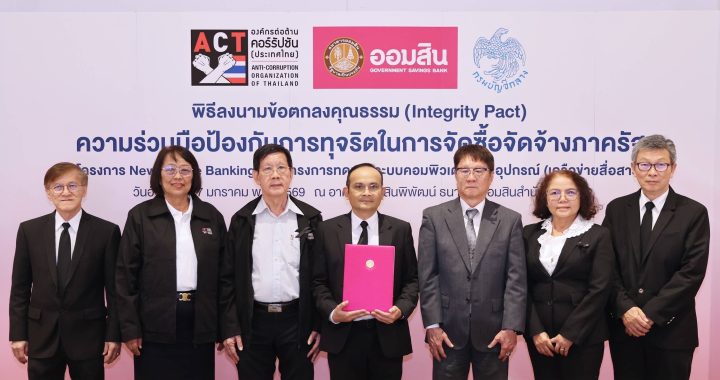SCB WEALTH holds ‘SCB First Investment Outlook 2022
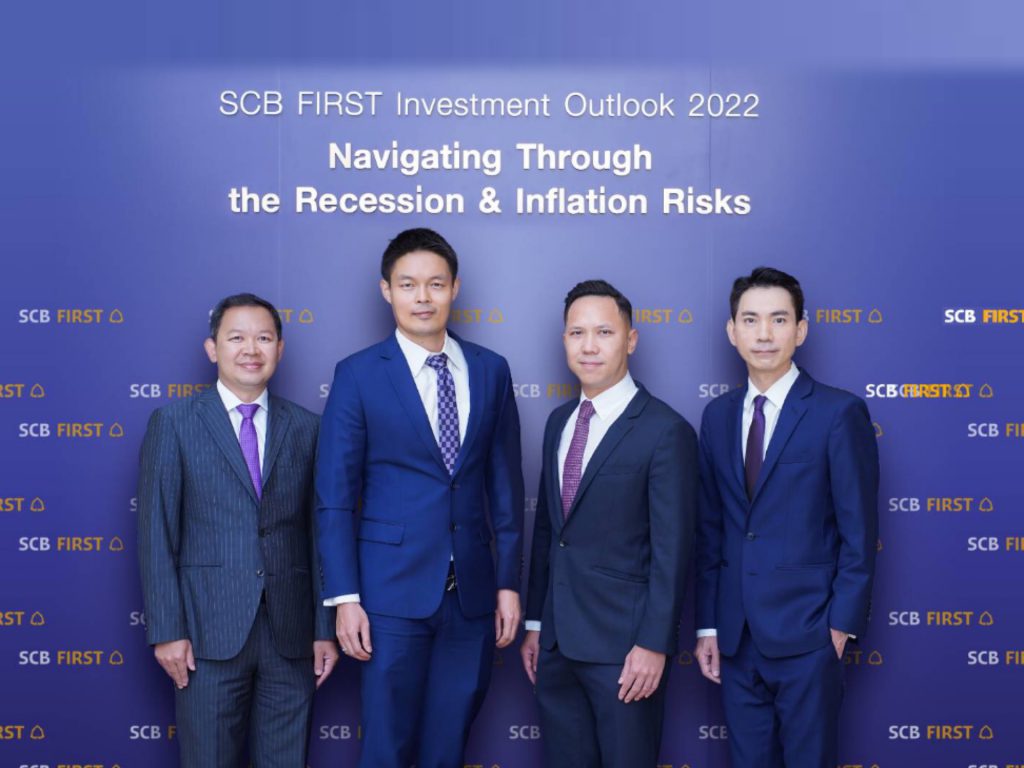
SCB WEALTH recently held a seminar for SCB FIRST clients titled “SCB First Investment Outlook 2022: Navigating Through Recession & Inflation Risk”, during which they shared their insights on coping with inflation and economic downturn. The SCB CIO believes inflation has peaked, as core inflation has been falling and the MPC hasn’t been aggressively hiking interest rates out of worry for the impact of consumer debt on the economy. Based on the expectation that the Thai economy will not grow significantly in the third and fourth quarters and given that this year’s GDP will be around 3%, Innovest X recommends stocks with growth potential that will benefit from a reopening of the country, higher interest rates, and increasing inflation. Travel, electronics, real estate, banking, communications, finance, and innovative technologies like electric vehicles are just some of the industries whose stocks belong to these categories. BlackRock and Schroders, meanwhile, favor stocks in the themes of clean energy, sustainability, a circular economy, and healthcare.
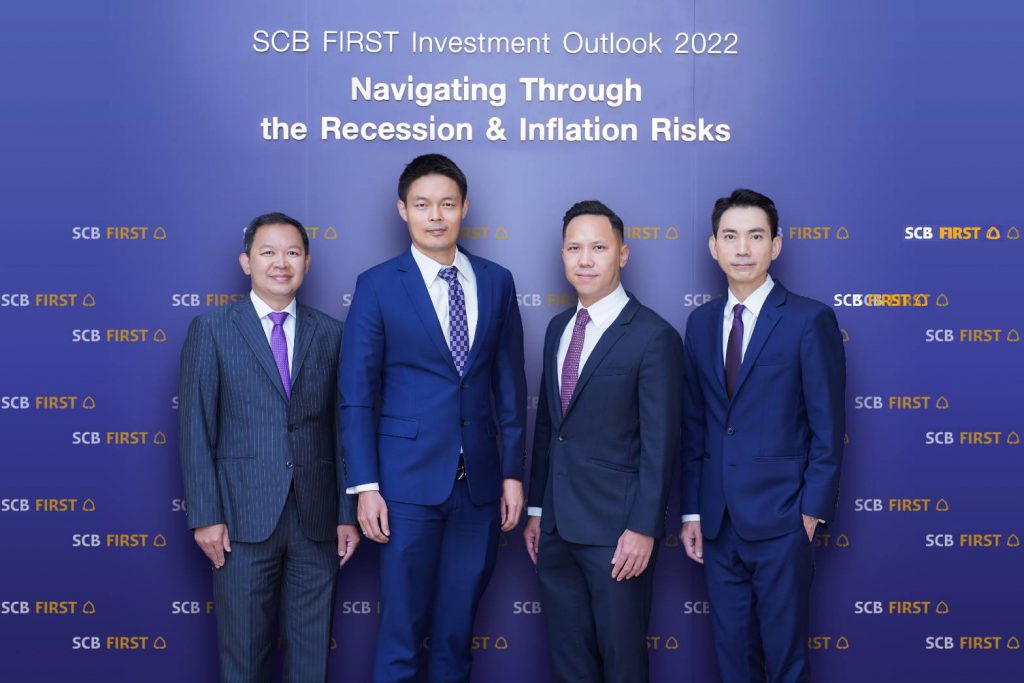
At the recent “SCB First Investment Outlook 2022: Navigating Through Recession & Inflation Risk” seminar for SCB FIRST customers Siam Commercial Bank Chief Investment Office and Product Function Executive Vice President Sornchai Suneta noted that the US inflation rate remained high as people began to increase their spending as the pandemic situation improved. This situation caused a shortage of workers in the service and manufacturing sectors, leading to rising wages. Although the US inflation rate has been marginally lower in July due to falling food and energy prices, the impact of the Russia-Ukraine war and increased demands for energy caused prices for a variety of items to soar, as did energy costs. The SCB CIO anticipates that U.S. inflation will have passed its peak but will not decline rapidly. The forecast is based on core inflation, which includes home prices, house rent, transportation costs, and automobile prices, which began to drop as a result of interest rate hikes. With declining demand, inflation is predicted to revert to 2% in 2024 after a sluggish decline. Due to growing energy and food prices resulting from the Russia – Ukraine conflict, inflation in Europe has not yet peaked. With Europe’s expanding economy, the energy deficit will trigger industries to produce fewer goods. The service sector may also shrink next year, putting European nations at risk of entering a recession.
Inflation in Thailand has not yet reached its high, and there is a probability that it may continue to rise due to rising product prices until the third quarter. Thai economic recovery lagged behind that of other nations, but this year the export and service industries are headed in a more promising direction of growth, thanks to the return of tourists to Thailand. It is expected there will be approximately 10 million tourists in 2022 and 40 million in 2024, the same number as before the pandemic. Consequently, the tourism industry is likely to continue to grow. Thai inflation may decline faster if food and energy prices drop to a manageable level.
Currently, after deducting inflation, income in Thailand is negative since income growth has been so sluggish. After deducting inflation, the income of approximately 15 million Thai households surpasses their expenditures, whereas 8 million households have higher expenses than income, requiring them to spend their savings. The debts of the 15 million families totaled around 2.4 trillion baht, whereas the 8 million households with insufficient incomes totaled 2 trillion baht, resulting in an increase in debt vulnerability. The issue may impact financial institutions as the likelihood of non-performing loans rises. As a result, it is anticipated that the Bank of Thailand (BOT) will not hike interest rates as aggressively as the United States, judging from the previous meeting of the Monetary Policy Committee (MPC), which raised the rate by 0.25 percentage points due to worries over household debt. If inflation remains strong, it is anticipated that the MPC will raise the policy rate by 0.25 percentage points three times this year and twice more next year.
Innovest X Securities Co., Ltd. Chief Research Officer Sukit Udomsirikul noted that stock investing is risky, but highly liquid. Investors select firms or industries that are favorable at different times. Despite the possibility that the global economy or market conditions as a whole are unfavorable and the stock market is sinking, some stocks will thrive. Therefore, it is an appropriate investment for risk diversification. During the third and fourth quarters, the Thai stock market is not expected to rise significantly relative to GDP growth, anticipated to be about 3%, and the SET index is expected to stand around 1,650 points within a range reaching 1,750 points. Since the beginning of the year, roughly 150 billion baht of foreign capital has been invested in the Thai stock market, prompting the index to climb. Overall, the Thai stock market has been impacted by numerous risk factors, including the Russia–Ukraine war, high inflation, an increase in interest rates and environmental repercussions from s drought. In the third quarter, share prices have already made a significant decline to the level of 1,500 points, which may be the SET index’s lowest point for this year. Despite the continued emergence of risk factors, the tourism, medical, and transportation sectors have favorable prospects, and earnings are likely to continue to rise as the economy reopens. Commodities, food, and energy are industries that benefit from inflation, while banking and insurance are industries that profit from interest rate increases.
According to research conducted by the analysts at InnovestX, the travel, insurance, electronics, real estate, banking, telecommunications, finance, and infrastructure sectors, including electric trains, are projected to show favorable earnings trends in the second half of the year. Adaptability is a strength in these segments,” concluded Sukit.
Thanapol Ittinithipak, Director and Head of Thai Business for BlackRock, revealed that investors may have to endure market volatility for some time due to inflation and global interest rate hikes as well as geopolitical risks associated with international conflicts. As a result, investors are advised to adapt their portfolios to be more active in response to market volatility by investing in stocks, bonds, and alternatives with the potential for long-term growth, as there is no asset that provides constant satisfactory returns. Consequently, investments should be diversified to accommodate a variety of assets. In addition, there must be an adequate holding period for these assets to create returns.
In the face of uncertainty, BlackRock strategic View, which focuses on long-term goals with a duration of one year or more, and the more active Tactical View, which responds to market conditions in the next three to six months have concluded that although short to medium term companies in general are pressured by higher cost of running their business and may have negative impact at the bottom line, over a long term, stocks are still recommended as they can overcome inflation and grow over time. On the fixed income side, higher interest rates have an impact on bonds as a whole, however, some companies with strong cash flow, with around half of them, can generate yields of greater than 4% yearlyThese bonds aid in reducing the market’s short to medium term volatility.
Due to the potential for long-term growth, the ideal investment strategy should favor equity investments while reducing the weight of government bonds in both the Strategic and Tactical views to place greater focus on investment-grade corporate bonds. Private assets remain neutral, however, the majority of investors have underinvested in this sector. Therefore, Blackrock recommends to add exposure in this segment in order to increase value and reduce volatility. A BlackRock’s model portfolio utilizing historical risk and forward looking views have shown the portfolilo incorporating some alternative assets, at 30% in example, can enhanced overall risk adjusted return of investors’ portfolio.
The following industries will be the focus of investment themes: 1) An ESG Group supporting the transition into a clean energy society, such as electric vehicles, a circular economy, and the use of natural resources as needed; 2) A Digital Transformation Group evolving into a new era of technology as countries compete to develop technology to become leaders in the global economy, such as the development of future transportation systems linked with various electronic devices; and 3) A Strong Pricing Power Group that invests in companies that sell essential products or can pass costs on to consumers without having significant impact to sales, such as the health care industry, which tend to overperform during market downturn. This can help reduce the volatility of investment portfolios with supports by government policies. Data has shown in the last five years, the United States has increased its investment budget in healthcare from USD 3 trillion to USD 4 trillion, Japan from USD 400 billion to USD 600 billion, and Europe from USD 1.3 trillion to USD 1.4 trillion. Last year, the total spending allocated to healthcare alone hit USD 9 trillion. This contributes to the expansion of the healthcare industry. In term of demography, Over one-sixth of the world’s population, or approximately one billion people, are over 60 years old. This group will expand the healthcare group’s user base which is positive to the industry.
Arthit Thongcharoen, Head of Thailand Business for Schroders Investment Management (Singapore) Ltd. believed that that inflation and possible recession are the 2 main concerns for the second half of the year to next year. While the most recent inflation figure released in July indicated that inflation has slowed and investors are beginning to feel relieved, however, a slowdown in inflation was mainly due to falling energy prices, while food prices and the cost of products and services have not decreased significantly. If energy prices were excluded, July inflation was still 0.4% higher than in June, indicating that inflation is still the main issues. The price of goods and services is a significant driver of inflation, and part of these are wages which has not yet declined. As such, inflation is likely to remain elevated with higher possibilities of a recession.
Schroders has adopted a defensive portfolio strategy during this period so that in case of actual recession, the impact will be limited. However, if there is no recession, the portfolio can be adjusted to more aggressive stance to reflect the economic expansion. Schroders’ current asset allocation has been underweighted in equity even though the latest listed companies’ earnings were pretty solid. However, due to rising inflation and operating cost, it is corporate earnings may begin to stall in coming quarters. However, when compared to other regions, U.S. and Chinese stocks continue to be attractive. Government bonds is also adjusted to underweight due to expansive valuation and long duration which will be hurt from rising interest rates especially if inflation remains elevated that the Federal Reserve must continue to hike rates. Schroders prefers investment-grade U.S. dollar bonds issued by corporations in the United States and emerging markets. US corporate and emerging market bonds maintained an attractive price level relative to foreign government bonds. Regarding commodities, gold can be viewed as an anti-recession hedge. To reduce the portfolio’s volatility, investors may also consider private equity, focusing on consumer and healthcare-related sectors. For private debt, a floating rate debt seems to be attractive. For real-estate, investors may focus the investment on cash flow generating sectors.
Schroders emphasis the importance of sustainable investment, environmental friendly, socially responsible, and good corporate governance companies which have the potential for long-term growth despite the short-term volatility. There are five attractive investment themes, including 1) Clean energy, which will attract the interest of the general public, including the government sector, due to its role in reducing greenhouse gas emissions; 2) Segments related to energy efficiency, such as energy-saver construction materials that reduce energy consumption, solar grids; 3) Segments related to the environment friendly, including water resource management, waste management, which will benefit from circular economy; 4) Low carbon leaders companies which that has low level of carbon emissions; and 5) Sustainable transportation, which includes renewable energy transportation systems, such as electric vehicles and electronic public transport systems. Investment in this group will not be concentrated only in electric vehicle manufacturers, but also in components utilized in the production of electric vehicles, such as semiconductors producers for electric vehicle batteries, etc.



